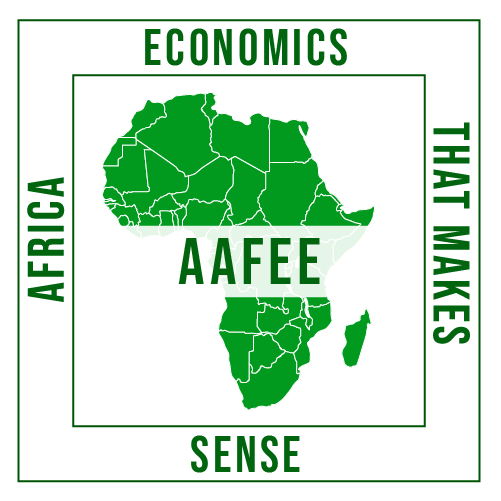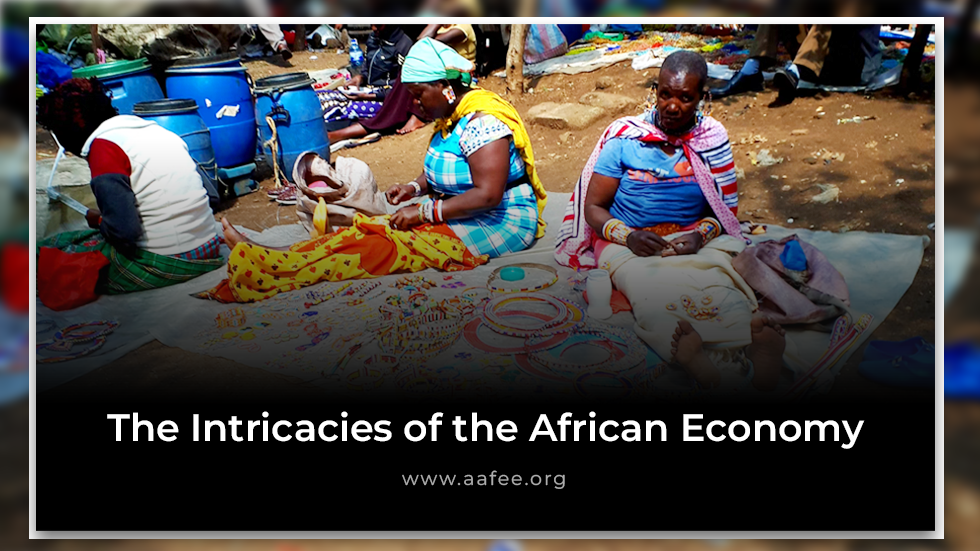When countries trade their natural resources with each other, thus having an equal chance of trade-ins and trade-outs, why are some countries more affluent and others remain poor?
One of the primary answers researchers have reached regarding this has revolved around the difference in capital and wealth accumulation and the changes the countries go through. However, this idea doesn’t wholly account for the factors that cause these differences – how do other countries earn more, and why do they choose to change their society?
Later on, another theory was put forward to answer this particular matter: the theory of Endogenous Growth. The theory postulates that economic growth typically happens due to internal factors within the country and commonly not the external ones. This means that this growth in wealth is linked to knowledge, innovation, and human capital; all of these cause an increase in productivity which, likewise, positively affects the economic outlook. And typically, the more favorable this outlook is, the more people would put actual effort toward it. This seeds the difference between countries’ economies.
Countries and Social Collectivism
In 2005, author and professor Samuel Enajite Enajero published a book entitled Collective Institutions in Industrialized Nations, discussing this economic difference with a focus on sub-Saharan Africa and comparing the economics of the latter country to the other countries in Europe and Asia. In his book, Enajero tackles the existence of an important institution that the country in question lacks. He mentions that this institution is distinctive in advanced nations and visible in practice in the other parts of the world – social collectivism.
According to Enajero, collectivism recognizes human interdependence and that an ideal society should be all-inclusive and altruistic. Social collectivism encourages and allows men and women to create opportunities that can impact the economy rather than waiting for them from the government or leaders. This refers to the permission of the collective to put effort into actively contributing to the improvement of the economy. This proactive nature then molds a nation into an organic and harmonious whole and could be one of the primary grounds for African economic differences.
How is African Economics Different?
Economic diversification is one of the essential methods for economic resilience and growth, yet one method Africa has failed to adapt. This diversity can be shaped by a country’s location, institutional framework, and consumption patterns. For instance, a region specializing in oil production can diversify by adding and supporting personal and industrial services that also use oil but produce a different product. Generally, Africa has an abundance of natural resources. In fact, it could be one of the wealthiest countries in terms of these resources and is one of the exporters in the world. But with its failure to diversify, Africa’s economy remained predominantly agricultural, and 60% of its population is only engaged in farming as a lifestyle and means of living.
Challenges Affecting Their Economy
One of the main posited reasons why the African economy remains underdeveloped, and its quality relatively poorer compared to other countries is its leadership. However, while leadership plays a massive role in determining a country’s economy and ushering in improving its economic standing through planning employment and services, some Africans believe that religion may have played a more significant part in its underdevelopment. The misinterpretation of scriptural texts blinded Africa from some improvements and face of life and hindered them from realizing societal enhancements that could have affected their economy.
With the African economy depending on agriculture, about three-fifths of their population are subsistence farmers, tilling plots of land to cater to their families and producing a minimal surplus to sell. While one of the wealthiest lands with natural resources does belong in Africa, they willfully choose not to maximize its potential. This is due to the lack of knowledge and information about what they can do with these resources. Education has been one of the vital sectors that Africa had been behind on, which could have contributed to their underdevelopment.
Since they lack the capabilities to plan, produce, and add value to their resources, they likewise fail in gaining more money or resources than what they put out or trade-off. With this current process, they lose more than what they earn, thus having little to no effect on their economy, possibly leading them to accumulate losses. Comparing them with other countries, where innovations are at the top of their priorities, Africa still has a long way to go.
Social Collectivism: The Answer to Their Problem
Some say that its poorness and the lack of progress in development are all conscious choices in light of Africa’s situation. They’re living in the way they are now because of a choice they collectively decided to live by. Opinions related to this assumption commonly point toward the idea that Africa has chosen to stay exactly the way they are rather than following the modernization of other countries because it’s their norm. It’s traditional. It’s what’s comfortable for them. And to achieve improvement in their economy, this is precisely what needs to be changed.
To improve, one of the first things they can do is have better education regarding the matter. Education can help because it will provide the country with a higher level of knowledge and skills that can help in innovation and diversification, thus leading to an improved economy and natural resources.


COLLECTIVE CHOICE AND THE “COMMERCIALIZATION OF CULTURE”
by
Samuel Enajero, Ph.D.
“Some say that its poorness and the lack of progress in development are all conscious choices in light of Africa’s situation. They’re living in the way they are now because of a choice they collectively decided to live by. Opinions related to this assumption commonly point toward the idea that Africa has chosen to stay exactly the way they are rather than following the modernization of other countries because it’s their norm. It’s traditional. It’s what’s comfortable for them. And to achieve improvement in their economy, this is precisely what needs to be changed.” –– Guest Blogger
I doff my hat to the guest blogger for the above quote because it echoes the beliefs of a majority of economists. The comments are in line with neoclassical economics thinking––rational choice. However, some questions follow: Is it actually correct to believe people collectively choose to live in pathetic poverty, and how was that collective choice formed? What is a collective choice? Collective or public choice is a function of the choices of agents in a group. The choice of an embellished impersonal public, whose choice supersedes the choices of all agents in the group. Once formed, everyone in the community or nation abides by choice of the impersonal public, represented by the community or the State.
Some authors conclude that collective choice is necessary to uplift people from their comfortable cultural circles. Without collective choice, people would conveniently revert or stick to their long-term memories, where norms, customs, and values are stored, to pick up economic behaviors that are counter-productive to national economic goals. What would the consumer purchase and the entrepreneur produce without collective choice? In fact, collective action is the “commercialization of Culture.”
I believe nations are prosperous because they form collective choices. There are different methods of forming collective choice, and the process is very educative under a democratic system. In forming collective choice under democracy, we have the optimal rule. Is the optimal rule unanimity rule, optimal majority, or simple majority? Unanimity rule is more efficient because no one suffers adverse effects, but it is time-consuming and difficult to attain. Under autocracy, collective choice is one person’s rule––a dictator resulting in a tremendous adverse effect (Buchanan & Tullock, 1962) because the choice could be that of tyranny. In societies with complete disregard for collective choice, it is anyone’s rule, that is, “no rule.” Under anyone’s rule, a country with 50 million people, the decision-making rule approaches 50 million rules. The economic consequences would be discordant chaos, and “no rule” is visible in many sub-Saharan African nations.
The questions remain, is the dire situation in sub-Saharan Africa classified as collective consent of the people or lack of collective choice? If it is a collective choice, how was it formed? Perhaps, it was formed by a tacit agreement coordinated by biology, as some would theorize. However, the fact that some Africans fled and thousands of young Africans drowned in the Mediterranean Sea attempting to flee their predicament reveal that their plights are not of their volition.
Historically, scholars have not associated human liberty and freedom with collective choice, but without collective choice, no one is free; an impersonal public does not exist. Instead of stressing the importance of collective choice in societies, energies were wasted, two world wars were fought, and the third is looming over the differences in the methods of forming collective actions. Meanwhile, new nations of Africa without interdependence economic norms, especially at the grassroots, easily associate collectivism with communism, thus, languishing in poverty. Sub-Saharan African nations are confused about the rationale for democracy and the existence of the State (Enajero, 2018).
Yes, countries are more affluent when they practice collective choice. In the U.S., the front-runner of free-enterprise and laissez-faire, collective choice is visible at the community levels. Different communities in metropolitan areas collectively provide different sizes and qualities of public goods financed by local income/property taxes, subsidized by higher-tier inter-governmental grants. Newcomers move into a community with income and property taxes that are commensurate with their preferences––the famous Tiebout model of people voting with their feet (Tiebout, 1965).
The presence of collectively determined local public goods are also referred to as social capitals and can only be endogenously provided. Public goods can be produced using low-medium skilled local labors that are in abundance in sub-Saharan Africa. Perhaps, the endogenous growth model refers to these collectively provided items, availability of which attract financial and physical capitals that serve as catalysts for faster development.
“It’s their norm, it’s their tradition,” agreed. Norms and traditional values are zero-order institutions that could be “displaced” by deliberative and calculative public policies. The solution to sub-Saharan Africa’s persistent poverty would require better economic collaboration, especially at the local level. Collective choice is instrumental to changes and helps check the excesses of individuals. One would say, therefore, it is not the collective choice of the Africans to live this way, as alluded by mainstream economists; rather, the absence of collective choice in the local communities places Africa in its current economic predicament.
References
Buchanan, J. & Tullock, G (1962). The Calculus of Consent: Logical Foundations of Constitutional Democracy. Ann Arbor: University of Michigan Press.
Enajero, S. (2018). “Interdependence Costs, Collectivism, and the Economic Rationale for Democracy.” Journal of Public Administration and Development Alternatives.” Vol. 3, No.1, pp. 1-11.
Tiebout, C. (1956). “A Pure Theory of Local Expenditure.” Journal of Political Economy, Vol. 64, pp. 416-24.
Hello! I simply wish to give you a big thumbs up for your excellent information you have right here on this post. I will be returning to your web site for more soon.